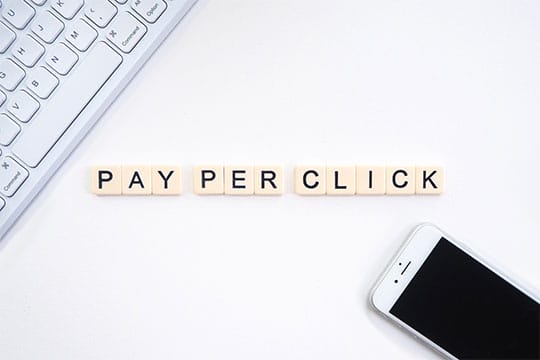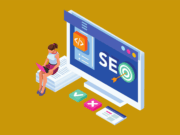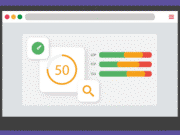It is possible for businesses to connect out to new customers by using pay-per-click (PPC) marketing. Many small companies have indeed been disappointed with their early attempts at pay-per-click marketing in spite of the power of this method. This marketing mode may be difficult to implement. Businesses in the primary steps of PPC marketing often underestimate the efforts and work required to lay a solid foundation and also the cost and effort required to remain on top of the competition. PPC ads could be the best strategy for a small business to grow quickly if done correctly.
It is challenging for small enterprises to enter the PPC industry since it is very competitive as well as expensive. With more prominent firms with powerful digital marketing experts and significant budgets, this could be more critical. If you’re a startup company, the excellent news is that you can compete up with established businesses to fight for daily traffic.
What is PPC ads & marketing for a small business?

While focusing on relevant keywords and structuring them into more effective promotional campaigns & online advertisements, PPC for small businesses aims to reduce the cost of clicks. A user’s time spent on your site must outweigh the amount of money you spend to attract that person to your site if you’ve done everything right. Make sure your PPC promotional strategies aren’t going to waste by following these steps if you’re having difficulties converting leads into paying customers on your site.
Recommended for you: Best 5 Automation Tools for Google PPC Ads You May Try.
Does PPC ads work for a small business?

Even small businesses may benefit from PPC ads. You can assess your return on This technique is perfect for small businesses attempting to reach a certain audience (ROI). Despite the tremendous cost of PPC marketing, it is possible to get started for free. If you know how to utilize PPC Ads, particularly local ads listings, you may get a lot of new customers by using them.
PPC (pay-per-click) advertisements may be created by anybody with a computer and internet access. When someone views and clicks on your advertisement on the internet, you are charged a little fee. Google, Bing, including social media networks like Twitter, Instagram, and Facebook all use pay-per-click (PPC) adverts. If you really want to grow your business, you must use pay-per-click advertising (PPC).
Tips for starting a small business with PPC ads

We’ve compiled a list of PPC optimization tips for small businesses and startups.
Make sure to target the right keywords

This is, of course, impossible if you don’t have the right keywords. The amount of money a small business spends on PPC ads directly impacts its capacity to compete with Google. For such a reason, keyword selection is very important. You must exercise extreme caution while deciding on a keyword.
Depending on the circumstances, small enterprises may rely solely on their own opinion when selecting keywords. Sometimes, going with your gut doesn’t work out so well. In order to come up with the best keyword list possible, it makes sense to use a well-known and established online tool. For small businesses, keywords are critical to a successful PPC.
Use negative keywords

If you want to save your budget from irrelevant search terms, then use negative keywords. It is helpful in many ways, but the most necessary help is by not showing up your ads in the search results of any searcher who is performing a search that is not related to your product or service. You only have to set negative keyword parameters. You must be aware of the Google Ads Keyword Planner, it’s one of the best free keyword research tools. Then use it to your advantage by adding a list of negative keywords into it. You have to find the keywords that are not related to your business and add them to the negative keywords list. This will help you by not showing your ads when someone uses the sorted negative keywords from the list.
For example, if you have a bakery business and sell cookies online. You would want to add the keyword “recipe” to the negative keyword list. Otherwise, it will show your ad in the search result if someone tries to find the result for “cookie recipes”. And if someone is interested in cookie recipes, he must be wanting to bake it by himself rather than buying it from a store.
You may like: How to Use Twitter, Facebook & Instagram in Your Online Advertising Campaign?
Targeting a certain geographic location

A winning PPC strategy for a small business is to go after competitors outside of their areas of expertise. When it comes to geography, it’s great if you can get to places wherein no one else can:
You can get an edge over your larger rivals by targeting locations that they aren’t focusing on in their national sales initiatives. PPC for small businesses may be used to target specific geographic locations.
Using geo-targeted keywords, such as “the greatest cake service in London,” might reduce competition even more. When it comes to PPC ads, the click-through and conversion rates could be higher than typical, which is significantly more important than the number of impressions.

There must be a proper account and marketing structure in place

To enhance your PPC campaigns and budget, you should aim to spend as little time and money on clicks. So, you can get much more hits for your investment, and you’ll get a higher return on your advertising investment, too.
In order to decide how much a marketer must pay for each click, Google utilizes a metric defined as the Quality Score. Pay-per-click advertising costs less when the ads are more targeted and optimized. Ad groups should indeed be grouped together and sent to related landing pages to maximize your monthly advertising expenditure. Even if you have to construct ten distinct landing pages for every ad group on the site, you will save money over the long term.
First campaign

Once you’ve chosen Google Ads as your major advertising platform, you’ll go into your Google Ads profile & initiate a unique “Search Campaign.” The very next step is selecting your targeted individuals looking for terms on Google. After learning that we only promote online meal purchases, you can now develop a campaign based on the organization to target customers in Boulder or London. It will be easier to live within your means if you set daily spending goals. For small firms, PPC for small businesses may suddenly be more effective than ever before.
Budget

It is important to consider both time and money when creating a PPC budget. Let’s get started with the topic of money. Many small firms might fold if they don’t have enough money in a bank account. Rethink your decision if you’re paying $100 or $200 a month. Only the most successful PPC marketing has a click-through as well as a conversion rate of 5% or less. In order to have a significant influence on your business, you must have a large enough budget. Budget $500 to $1,000 a month to achieve the stated goals.
Time constraints must also be considered

A PPC campaign can’t be evaluated in a matter of weeks or months. You may be startled by the findings of testing over the period of six to twelve months. Due to lack of testing and/or giving up too early, PPC for Small companies commonly fails in campaigns. Keep trying the variables and have patience. It is not a one-go game; it has its own league.
Take a look at the results

Just because your PPC campaign will continue to run as long as you continue to pay for it does not mean that you can just set it up and walk away. Keep an eye on your results to make sure they’re still helpful for you as well as your small business, at the very least. You may also use this information to make modifications and improve your advertisements. Your efforts will only become more successful and profitable if you keep refining them in the long term.
You may also like: Applying Big Data to Advantage Your Social Media Advertising.
Conclusion

Bing Ads and Google Ads offer helpful tools and very detailed reports to give you a better understanding of the performance of your campaign. The reports are so helpful, that you can get insights into the best performing ads and the demographics of the user making most of the purchases. You can also get reports on the irrelevant keywords that are not so well in performance and need optimization for the upcoming campaigns. PPC reporting provides you with actionable data that will help you increase conversions in the future.
If you’re looking for a quick approach to attract new clients for your small business, PPC ads and marketing might be your best option. To get the most bang for your buck, you’ll have to put some money into it upfront, but it’s well worth it in the long run. You can also hire some PPC experts with years of experience who can easily form and run PPC campaigns for your business to target your prospective customer and help your business grow faster. Make sure you hire the most credible and reliable PPC experts in order to get the highest ROI.
This article is written by Evelyn Grace. Evelyn is a professional content writer and marketing manager at Blurbpoint. She likes to write high-quality content on digital marketing niches like SEO, PPC, social media, and email marketing.





